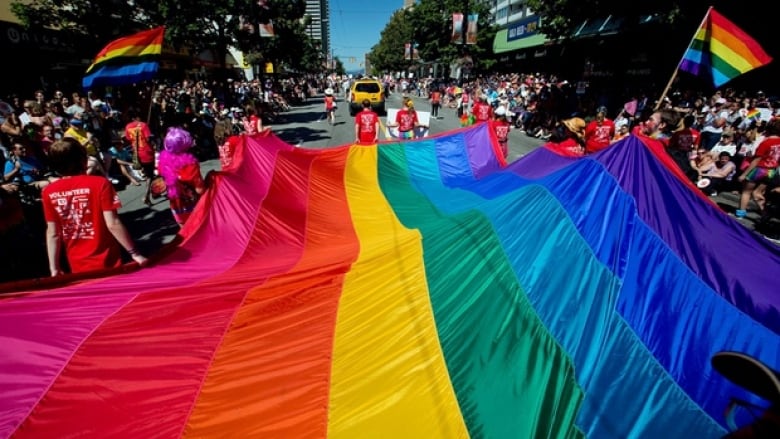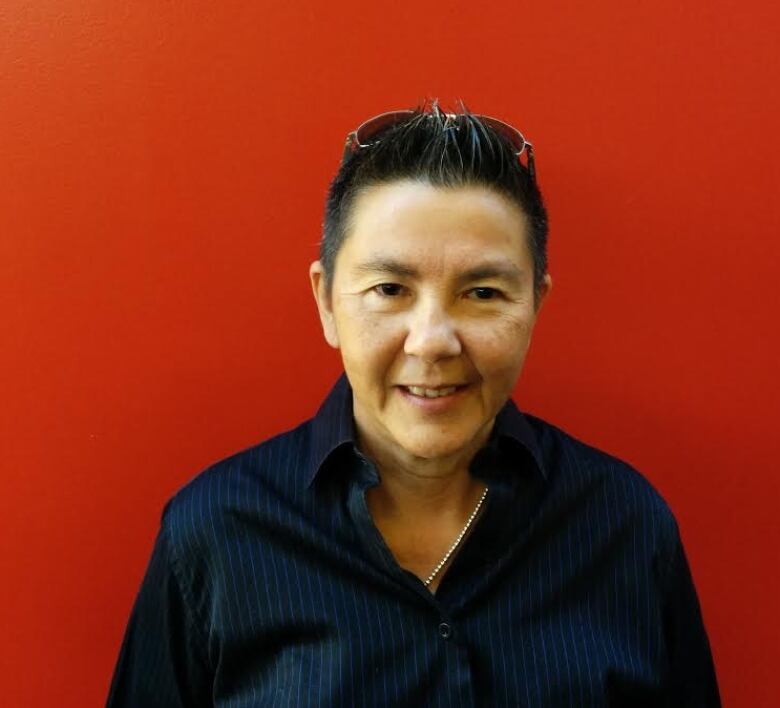Stronger transgender rights needed, says former human rights commissioner
Mary Woo Sims says the code should be explicit in the protection it has

A former B.C. Human Rights commissioner says she understands the Vancouver Pride Society's decision to ban groups from participating in this year's pride parade unless they sign a pledge supporting transgender equality legislation.
Mary Woo Sims, who acted as the chief commissioner of the B.C. Human Rights Commission from 1997 to2001, spoke to The Early Edition's Rick Cluff about the controversial decision heading into this weeks Pride festivities.
The B.C. Liberals have not signed the pledge, and the controversial decision to ban them prompted the parade director Tim Ell to resign.
- Vancouver Pride Parade bars B.C. Liberals over pledge
- Tim Ell, Vancouver Pride parade director, resigns
What's your reaction to the argument B.C.'s Human Rights Code already protects transgender people?
In 1997, I held hearings across British Columbia to look at substantive changes to the Human Rights Code. We heard from many British Columbians who were in the transgendercommunity who saidthey weren't covered and they didn't know they were covered.
In 1998, I submitted a report to the legislature calling on explicit gender identity protectionand the code. Since then, sevenprovinces and territories have explicitly indicated that gender identity is a ground now under their human rights legislation and I think B.C. should do just that.
Is there a danger of singling out one group of people over another?
When you look at the Human Rights Code, a teenager who is a transgender person trying to come out in school is going to look at the code andask 'where does gender identity come in?' If the fact of the matter is as the government is saying that it is covered, then let's just make it explicit because at present, an ordinary person who may not be in the know is not going to be able to see themselves covered.
What kind of discrimination did transgendered people say they experienced as a result of not having that specific protectionin the Human Rights code?

It ranged from overt physical violence ...Some people didn't feel safe enough to participate in the public hearings that we held across the province. I actually had private meetings with groups of transgendered people and they not only talked about the violence that they experienced, but also the extreme marginalization leading some to have to resort to working in the sex trade. Some of them were so despondent that they ended up using drugs and so forth.
Tim Ell, one of the directors of the pride society has resigned because he said the parade has become political but it shouldn't be partisan. The pledge was put forward by NDP MLA Spencer Chandra Herbert. Is that wrong?
I don't think that it should be partisan politics.Pride has never been partisan. It should be political in that it is a political protest. I think that the pride society has been struggling with this issue because they are about inclusion and they're looking at making sure people are aware that we currently have a deficiency in the human rights legislation both federally and provincially.
They are calling on anyone who participates in the pride parade to support this pledge and it calls for changes to the federal and provincial human rights legislation to clearly say people who are transgendered identity are covered under human rights code.
This interview was condensed and edited. To hear the full interview, click the audio labelled: B.C. needs to do more for transgender equality: former human rights commissioner.












_(720p).jpg)


 OFFICIAL HD MUSIC VIDEO.jpg)
.jpg)



























































































